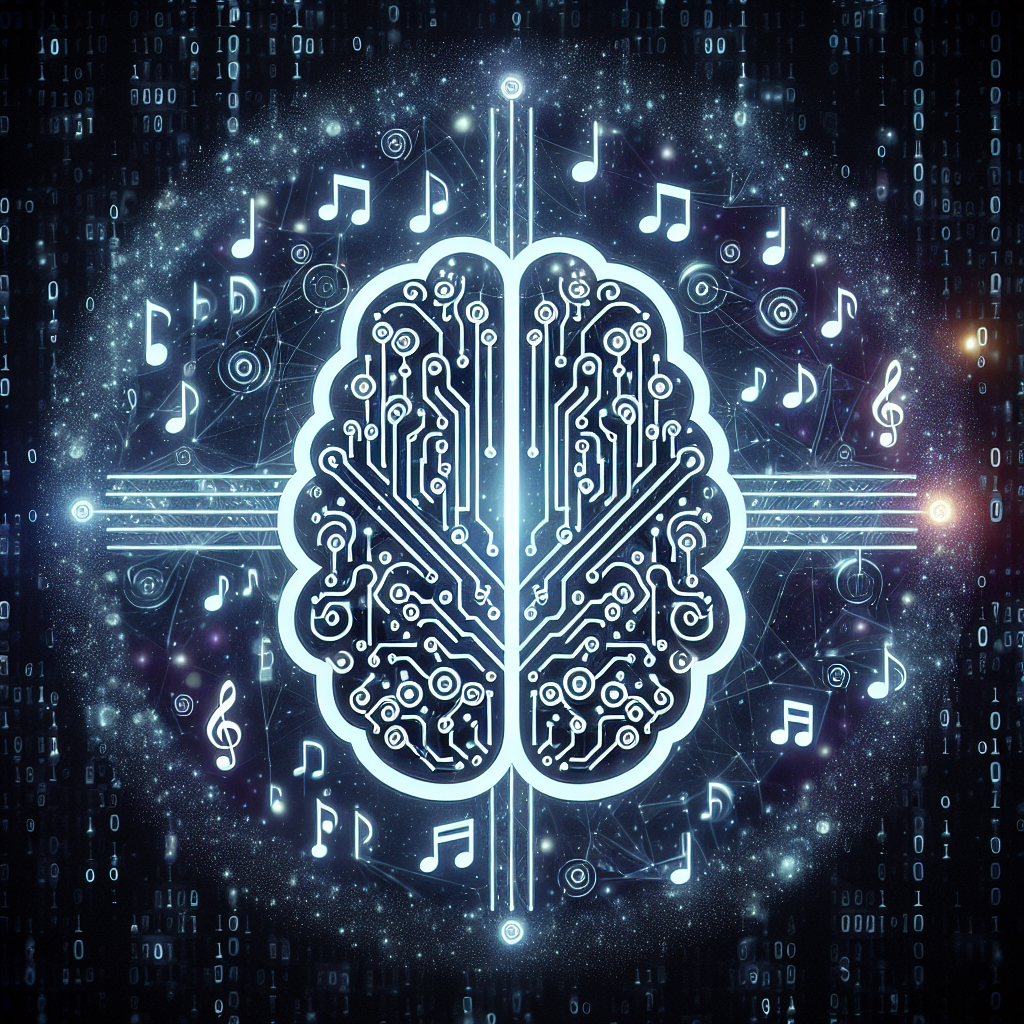The Science Behind AI Music Generation: How Does It Work?
Artificial Intelligence (AI) has revolutionized many industries, and music is no exception. AI music generation is a fascinating area of research and development that is changing the way we create and consume music. But how does it work? In this article, we will explore the science behind AI music generation and delve into the algorithms and techniques that make it possible.
What is AI Music Generation?
AI music generation is the process of using artificial intelligence algorithms to compose, produce, and perform music. These algorithms can analyze existing music, learn patterns and styles, and then generate new music that is similar or inspired by the music it has learned. AI music generation has the potential to democratize music creation, allowing musicians and producers to quickly and easily create music without the need for advanced technical skills.
How Does AI Music Generation Work?
There are several different approaches to AI music generation, each with its own set of algorithms and techniques. Some of the most common approaches include:
1. Rule-based systems: Rule-based systems use a set of predefined rules and constraints to generate music. These rules can include things like chord progressions, melodic patterns, and rhythm structures. While rule-based systems are relatively simple and easy to understand, they can be limited in their creativity and flexibility.
2. Machine learning: Machine learning algorithms, such as neural networks, can be used to analyze large datasets of music and learn patterns and styles. These algorithms can then generate new music based on the patterns they have learned. Machine learning algorithms can be more flexible and creative than rule-based systems, but they can also be more complex and require more data to train effectively.
3. Generative adversarial networks (GANs): GANs are a type of machine learning algorithm that consists of two neural networks – a generator and a discriminator. The generator creates new music, while the discriminator evaluates the music and provides feedback to the generator. This feedback loop helps the generator improve over time and generate more realistic and high-quality music.
4. Reinforcement learning: Reinforcement learning algorithms can be used to teach AI agents to compose music by rewarding them for creating music that is pleasing to human listeners. These algorithms can learn to generate music that is emotionally engaging and aesthetically pleasing by interacting with a virtual environment and receiving feedback on their compositions.
5. Markov models: Markov models are a type of probabilistic model that can be used to generate music by predicting the next note or chord based on the previous notes or chords in a sequence. Markov models are relatively simple and computationally efficient, making them a popular choice for generating music in real-time applications.
FAQs:
1. Can AI music generation replace human musicians?
While AI music generation has made great strides in recent years, it is unlikely to completely replace human musicians anytime soon. AI can be a powerful tool for assisting musicians and producers in the creative process, but it lacks the emotional depth and artistic intuition that human musicians bring to their performances.
2. Is AI music generation legal?
The legality of AI music generation depends on various factors, including copyright laws and licensing agreements. In some cases, AI-generated music may be considered a derivative work of existing music, which could raise legal issues. It is essential to understand the legal implications of using AI-generated music and to ensure that you have the necessary rights to use the music in your projects.
3. Can AI music generation be used for commercial purposes?
Yes, AI music generation can be used for commercial purposes, such as creating music for films, video games, advertisements, and other media. Many companies and artists are using AI music generation tools to quickly and efficiently create high-quality music for their projects.
4. How can I get started with AI music generation?
There are many AI music generation tools and platforms available that can help you get started with creating your music. Some popular tools include Amper Music, AIVA, and Jukedeck. These tools allow you to generate music quickly and easily, even if you have limited technical skills or musical knowledge.
In conclusion, AI music generation is a fascinating and rapidly evolving field that is changing the way we create and consume music. By using advanced algorithms and techniques, AI can analyze existing music, learn patterns and styles, and generate new music that is inspired by the music it has learned. While AI music generation is unlikely to replace human musicians entirely, it can be a powerful tool for assisting musicians and producers in the creative process. If you are interested in exploring AI music generation further, there are many tools and platforms available that can help you get started on your musical journey.

